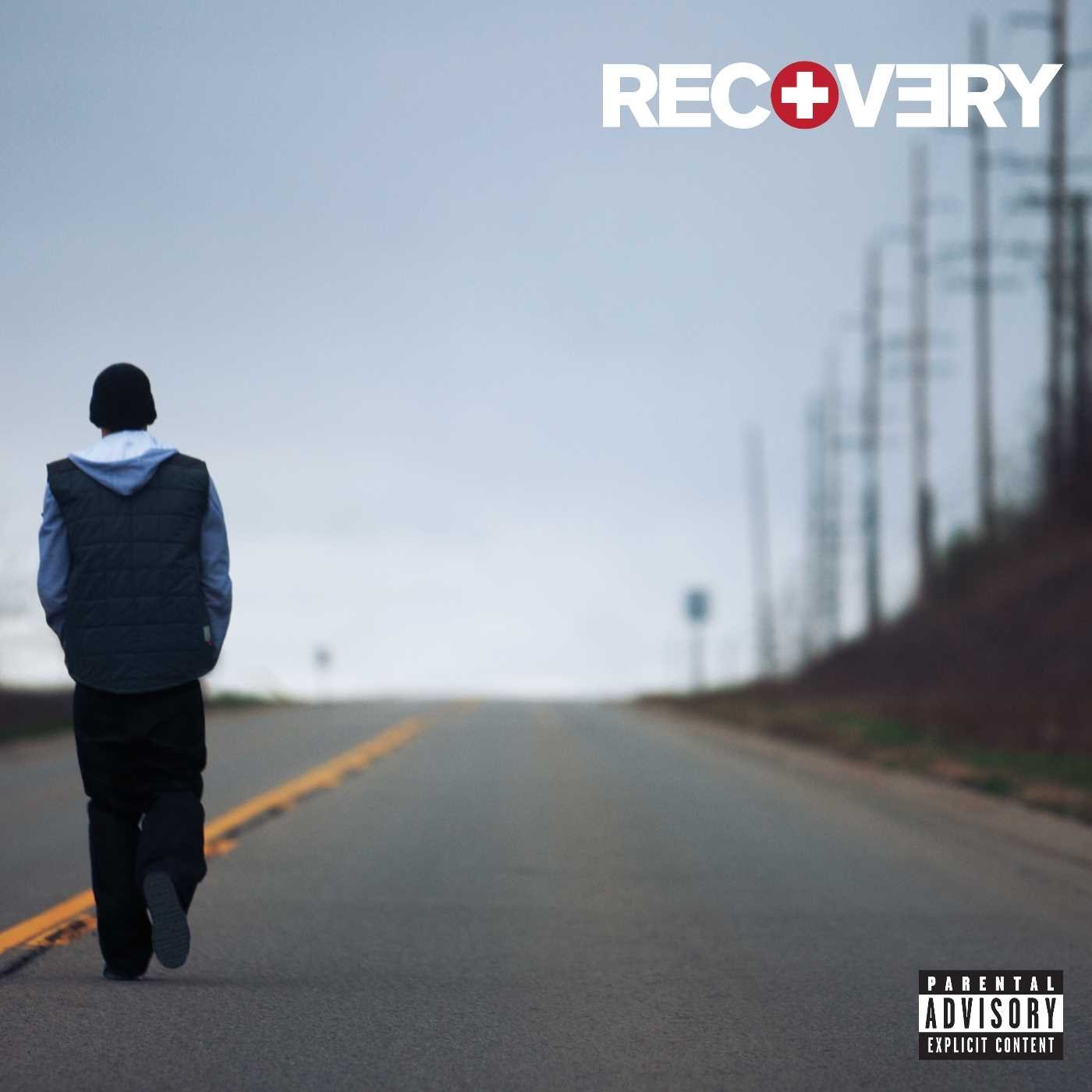Album Reviews
Album Review: Eminem – Recovery

It’s been eleven years since Slim Shady cleared his throat on what was essentially Eminem’s debut single, “My Name Is…” and asked, “Hey, kids do you like violence? Wanna see me stick nine inch nails through each one of my eyelids?”
No way was this guy not going to be huge and controversial. More crucially, the man behind it all was such a complicated character that he needed both rap names to channel the voices in his head: Eminem was his alter ego, Shady his alter id. The former was a rapper with insane technical skills, cramming each line with circuitous phrasing and internal rhymes; the latter was something even more fascinating—the Bart Simpson of hip-hop, gleefully stamping on taste and convention as he rendered the visceral as cartoonish and thrived on detractors and finger-pointers.
Appropriately, that album was titled the Slim Shady LP, and it was followed up by the Marshall Mathers LP, which purported to explore the flesh-and-blood man, who it seemed was no more or less real than Shady himself. That album not only sounds more tortured than its predecessor, but much more conventional in relating the rapper’s personal pain. Rather than hide behind the scrim of Shady, Mathers was artfully blunt, cagily confessional, just as dangerous and dark but without the punchlines to soften the punches.
Eminem capped the trilogy with The Eminem Show, which he tried to reconcile each of his personae into one living, breathing, rapping human being. That this album was the least consistent and revelatory of the three almost seemed like a well-made point: Slim and Marshall could not be so easily assimilated. They fought to be heard and it sounded like Em barely wrestled them to a draw.
In the eight years since The Eminem Show closed out one of pop’s best threepeats, Slim and Marshall have been noticeably missing from hip-hop. They were largely absent from Encore and Relapse, causing that careful balance of identity to tip to one side. It makes for much less interesting music, as Eminem’s fourth, fifth, and now his sixth LP make clear. Of course, there are mitigating factors to such diminishing returns: age, drugs, changing hip-hop trends (hey, people do listen to techno!), and a general desensitization toward his caustic humor and horror. But on Recovery, Eminem mostly sounds lonely.
The album picks up where Relapse left off, addressing Eminem’s drug problems with predictable candor. He plays humble, as if going through rehab steps. On “Talkin’ 2 Myself,” he apologizes to his fans but stops short of offering refunds. He knows he let them down, and he tries to let their imagined disappointment make him hungry. Even more intriguing, on the same song he rhymes about being eclipsed by Kanye and Lil Wayne, even admitting that he considered beefing with them. Spoiler: He didn’t. Especially when he closes the song by telling them to keep their heads up, it’s a great moment, unique in hip-hop for its self-conscious maturity and solidarity. It almost sounds like Marshall Mathers.
Recovery once again proves what a technically impressive rapper Eminem can be, especially on the dexterous wordplay of “Won’t Back Down” and “White Trash Party.” But it whittles down his range considerably, suggesting he’s a more limited rapper than he actually is. Em half-screams his words in a strident flow that rarely deviates from one song to the next and therefore quickly becomes predictable and repetitive. Perhaps it’s meant to evoke his hunger to win back fans and regain the rap crown he once wore so easily, but it suggests a deeper desperation—a need to be heard, understood, validated.
By now, Eminem’s personal predicaments—the constant self-loathing, the love-hate relationship with his ex-wife, his hate-hate relationship with his mother, his love-love devotion to his daughter—are all well-known. His only enemy these days is… not himself (that would be too interesting), but his drug addiction. He documented his battle with pills on Relapse, but the subject matter never seemed to inspire or motivate him. He addresses it again on Recovery, but makes clear that the title refers to professional matters, not narcotics. In other words, he’s obsessed with his own celebrity, alternately decrying it as hollow and reaching for more. That contradiction might have been compelling if Eminem had drawn the connections and worked it into a complex metaphor, but instead, he sounds like a reality TV rapper, obsessing over himself for cheap drama. How cheap? He samples Black Sabbath’s “Changes” on “Going Through Changes.”
But what truly makes Recovery so dispiriting and dour—what makes it impossible to live up to that title—is that there’s no trace of creative zeal on these songs, no joy in twisting words into new shapes and devising pop-cultural bobby traps. Even the high-wire rapping sounds as obligatory and uninvested as an Eric Clapton guitar solo. Eminem’s not having any fun here, which means his listeners won’t have any fun here either. The album ultimately sounds like it’s motivated not by the self-love that motivates so much great hip-hop, but by self-pity. Who needs that? When’s Slim Shady going to make a new record?
- Lists13 years ago
Top 10 Country Music Albums of 2010

 Interviews5 years ago
Interviews5 years agoJohn Rich – The Interview

 Song Reviews16 years ago
Song Reviews16 years agoTaylor Swift – “Love Story”

 Interviews5 years ago
Interviews5 years agoHoneyhoney on Hiatus: Revisit our 2008 Interview with Suzanne Santo

 Album Reviews14 years ago
Album Reviews14 years agoAlbum Review: Miley Cyrus – Can’t Be Tamed

 Song Reviews6 years ago
Song Reviews6 years agoThe Band Perry – “Hip To My Heart”

 Columns5 years ago
Columns5 years agoThe Link Between Folk Music’s Past and Present

 Columns5 years ago
Columns5 years agoIs Marketing Killing Rock and Roll?













